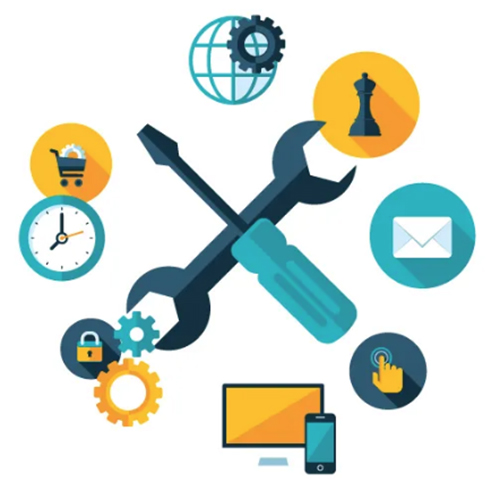 Construction erp
Construction erp
Manufacturing ERP development services
Product Info
Manufacturing ERP development services involve customizing and implementing software for manufacturing companies. Key aspects include customization, integration, user-friendly design, data migration, testing, and ongoing support.Manufacturing ERP (Enterprise Resource Planning) development services encompass a range of activities and features aimed at designing, developing, implementing, and maintaining an ERP system specifically tailored to the needs of manufacturing companies. These services can be provided by software development companies or ERP solution providers. Here are some key components and features typically included in manufacturing ERP development services:
-
Requirement Analysis: Understanding the specific needs and processes of the manufacturing company. This involves discussions with various stakeholders to gather detailed requirements.
-
Customization: Tailoring the ERP system to meet the unique needs of the manufacturing industry, including production scheduling, inventory management, quality control, and supply chain management.
-
Module Development: Creating different modules or components for various functions like production planning, inventory management, procurement, sales, and financial management.
-
Integration: Integrating the ERP system with existing software and hardware solutions used by the manufacturing company, such as machines, sensors, and other production equipment.
-
User Interface (UI) Design: Designing a user-friendly interface for easy navigation and data entry. This may also involve creating mobile apps or web-based interfaces for remote access.
-
Database Design: Developing a robust and scalable database structure to store and manage large volumes of manufacturing data efficiently.
-
Security: Implementing security measures to protect sensitive manufacturing data from unauthorized access and cyber threats.
-
Data Migration: Transferring data from the old system to the new ERP system without loss or corruption of data.
-
Testing: Conducting extensive testing, including unit testing, integration testing, and user acceptance testing, to ensure the ERP system functions as expected.
-
Training: Providing training to employees and users on how to effectively use the ERP system to maximize its benefits.
-
Deployment: Deploying the ERP system in the production environment, often in phases to minimize disruption to the manufacturing operations.
-
Post-Implementation Support: Offering ongoing support and maintenance services to resolve issues, provide updates, and address evolving business needs.
-
Scalability: Ensuring that the ERP system can scale as the manufacturing company grows and expands.
-
Reporting and Analytics: Developing reporting and analytics capabilities to help the manufacturing company make data-driven decisions and optimize its processes.
-
Compliance: Ensuring that the ERP system complies with industry-specific regulations and standards, such as ISO standards or FDA regulations for the food and pharmaceutical industries.
-
Continuous Improvement: Working with the manufacturing company to continuously improve the ERP system by incorporating feedback and adapting to changing business requirements.
-
Cloud and Mobile Solutions: Developing cloud-based or mobile ERP solutions to provide remote access and flexibility to users.
-
Cost Analysis: Assisting the manufacturing company in assessing the cost-effectiveness of the ERP system and its return on investment (ROI).
-
Upgrades and Enhancements: Keeping the ERP system up-to-date by providing upgrades and enhancements to incorporate new features and technologies.
Manufacturing ERP development services are highly customized to meet the specific needs and goals of each manufacturing company, as no two manufacturing operations are exactly the same. The goal is to streamline operations, improve efficiency, reduce costs, and enhance overall competitiveness in the industry.
